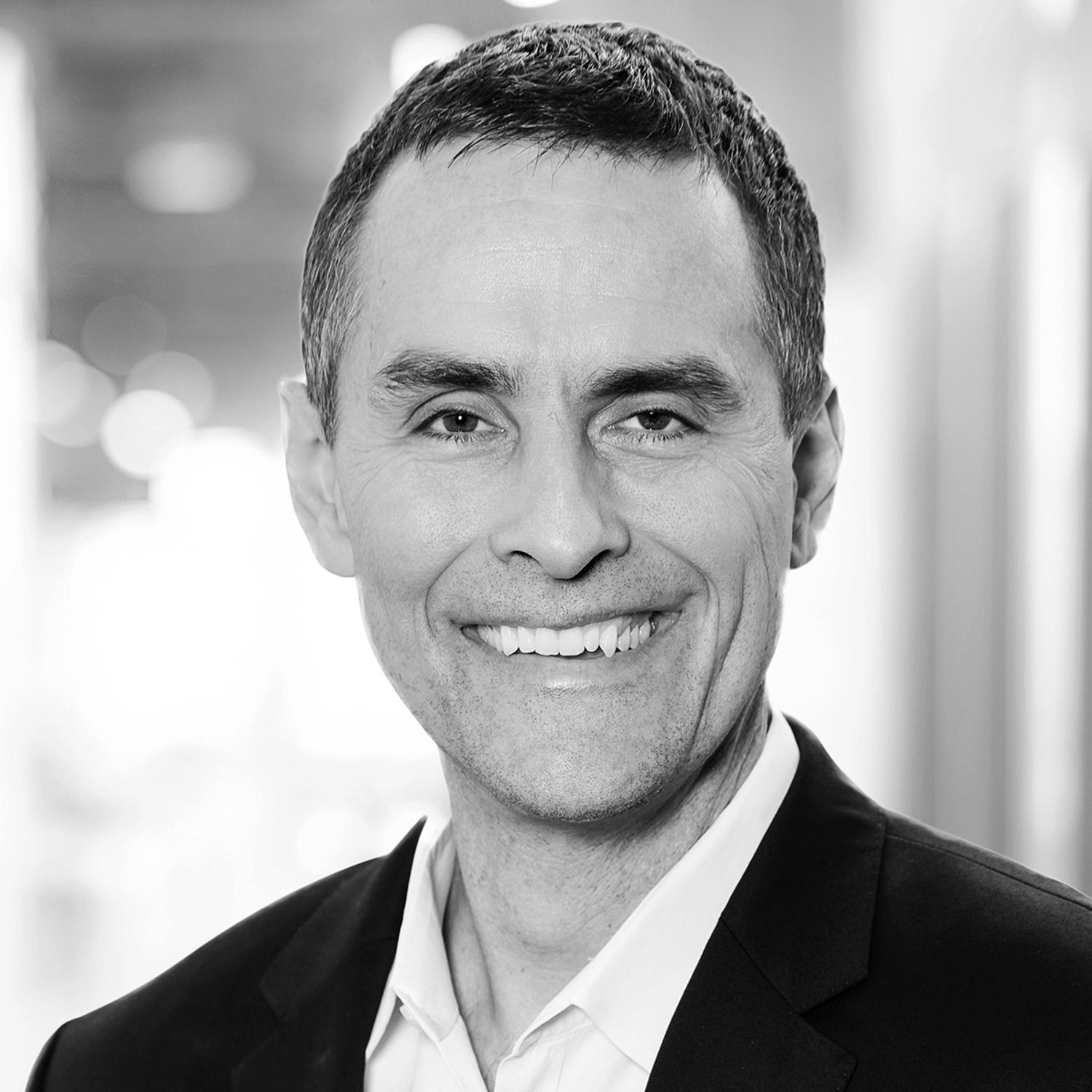Q&A with Barry Uphoff
Barry Uphoff is a leader in all regards. He has advised some of the world’s largest and most prestigious private equity firms, and he currently leads as founder and managing partner of Martis Capital. His path into the world of PE was anything but typical, though.
Born and raised in a small town in Nebraska, Barry went to university with plans to become a physician. He studied biochemistry at Johns Hopkins University and was on his way to its medical school when an opportunity arose to study law at the University of Oxford as a Rhodes scholar. His deep-seated curiosity pushed him to pursue this incredible opportunity.
From there, Barry enrolled in the University of Chicago’s MBA program and immersed himself in business at Booz Allen Hamilton’s healthcare practice. Barry quickly realized that he could have a greater impact on the healthcare industry from the business side instead of as a physician.
This led him to co-found a consulting firm, Diamond Technology Partners, where he led the company’s healthcare division. Over the following 10 years, the business grew from 12 to 500 employees. Barry advised many of the firm’s PE clients, who suggested his domain knowledge would make him an excellent fit for private equity.
This was the catalyst for his transition to PE, where he has held senior positions at Trivest and Silver Point Capital. Subsequently, Barry joined Capricorn Investment Group, Jeff Skoll’s family office, to lead its direct investing program focused on healthcare and wellness as well as its private equity and credit fund investing activities.
Born out of Capricorn, Barry launched Martis Capital, which specializes in buyout and growth equity investments in middle-market healthcare companies. The firm manages more than $1.2 billion of equity capital, investing across healthcare technology, services, and products.
Throughout his journey, Barry kept the Midwestern mentality and proved that hard work, dedication, and reliability are some of the best ways to lead a business. Nate DaPore, managing director of healthcare and life sciences at Acertitude, met with Barry recently to discuss some of the key lessons Barry has learned throughout his career. These lessons should be beneficial to anyone who wants to lead, grow, and transform a company.
Achieving breakthrough performance
Nate: In your experience working with executives at some of the largest and most prestigious companies and private equity firms around the world, what makes a brilliant leader?
Barry: Work ethic is everything. Potential business partners, CEOs, investors, and employees want to work with people who work hard, show up on time, follow up, and offer help. My motto is to “do what you say you’re going to do” — that stems from my Midwestern roots. Be humble rather than arrogant. People want to work with good people, and it’s the simple things that make you the best partner and leader.
PE is a fast-paced, demanding industry, and it’s vital to have the right attitude. It’s also important to make sure that you’re performing at your best. To do that, I take time outside of work to do things that make me happy and keep me grounded. I exercise, listen to podcasts, and spend time with my family. Getting away from work is an excellent recharge that ensures you’re able to drive the best results and create the greatest value in the business.
To be a good leader, you have to follow your passion. Discover your passion and either turn it into a career or find a career that perfectly matches it. My longtime friend and business partner Jeff Skoll was college roommates with Elon Musk. Thanks to Jeff, I was lucky enough to meet Elon — before Tesla went public — after he presented his Tesla Roadster concept to a small group. You could feel Elon’s passion for electric vehicles and making the best one, period. There will always be smart and hardworking people, but that kind of passion and perfectionism is what makes people stand out.
Leaders are only as good as the people around them. Just the other day, we had a call with our LP advisory committee. I had two other team members on the call. I’m always prepared to say something, but I didn’t need to. These two individuals, who have many years less experience than me, handled the call remarkably well — certainly better than I could have when I was their age! When you have great people like that on your team, you can give them more freedom to run with things on their own. This is especially important for entrepreneurs, who are busier than a one-armed paper hanger and need the right people to grow.
You have to accept that you can’t do it all — no matter how much you may want to — so it’s essential to have people you can trust when it’s time to delegate tasks. One thing I’ve learned in my time as a leader is that if somebody brings you a 90% solution, but you have a 95% solution, you shouldn’t force the latter on that employee. They won’t think it’s a 95% solution because it’s not their solution. You are better off letting them run with their 90% solution — motivation and performance are higher when team members can take ownership of their ideas and act on them.
Building strong teams and trusting them is at the core of our values at Martis. We invest in leaders and their businesses because we believe in them and their growth. We understand what it takes to build healthcare businesses for the long term, and we do what we can to support their passion and performance. Our goal is to be their trusted partner.
Competing in private equity
Nate: You’ve worked in the private equity world for years and have a proven track record of success. What trends have you seen in the sector?
Barry: It’s no longer enough for PE leaders to just know how to run a spreadsheet or access debt. Private equity has gotten a lot more competitive. Now, leaders need to be very flexible in their approach and do things operationally with the companies to make them better. As a result, nontraditional paths into PE have opened up. My career path is proof of this shift. In the past, it was common to go from business school to investment banking and then PE. My path was business school, consulting, co-founding a consulting firm, and then PE.
For those interested in a move to private equity similar to mine, it’s great to have worked with a PE firm in the past as a C-suite member or consultant, for example. Develop that relationship with a firm and learn its playbook — how it builds and grows businesses. Then, you can either continue to work with companies in that PE portfolio or try to get on the PE team. You have to work hard to show that you have the passion and drive to thrive in the PE world.
To compete in this space, you have to get operational DNA into the portfolio. You can do this in a few ways: by working with people as advisors, backing someone as CEO, or sitting on the board with someone. As an example, we once worked with someone in an advisory role. When a company in our portfolio needed a CEO, it was a natural move for him to step in.
This operational DNA is important at Martis Capital — particularly as changing healthcare trends in technology and consumer behaviors have caused us to think about healthcare differently. In the past, healthcare wasn’t considered a good or product that people bought. There was no consumer experience; it was essentially a black box. Now, thanks in part to technology-savvy Millennials, people expect the customer experience in healthcare that they get everywhere else. They shop around and look at reviews rather than solely rely on word of mouth, like in the past.
Finding opportunities amid the pandemic
Nate: The coronavirus has upended every sector, including private equity. How have you adjusted your playbook and prepared for recovery?
Barry: Frequent communication has never been more imperative for businesses. Since working from home became the norm in the wake of the coronavirus, we have held daily meetings that allow team members to touch base quickly. Board meetings with our portfolio companies and conferences are all virtual, and they have gone better than expected. With everything else going on, we don’t want people to feel pressured to come back to the office. We’re going to take things slow and stagger people coming into the office at least for the rest of 2020.
We’ve used this time as an opportunity to focus on the portfolio. Now is the time to start conversations with potential investors, strengthen portfolios, and get great people on board. I’ve been able to meet with CEO candidates and talk with them from a safe distance, for example.
We closed our most recent fund a little over a year ago, which turned out to be good timing to not be on the road fundraising at the moment. Based on recent calls, it seems the PE industry’s asset allocation is light for healthcare in general — perhaps this is a function of the pandemic.
Healthcare accounts for roughly 20% of our economy; it’s a highly fragmented industry with many “mom and pop” owners, which means the middle market and lower middle market historically have been the most effective ways for investors to get exposure to the sector. As a result, Martis Capital has seen a lot of LPs reach out about our next round of fundraising.
Attitude is everything right now. You have to remain dedicated, be flexible, communicate often, and work hard to show your employees and partners that you will come out of the pandemic stronger than ever.
Defining brilliance with Barry
| Purpose is... | living life. |
| Leadership is... | surrounding yourself with great people. |
| Brilliant leaders are... | intellectually curious, passionate, and great delegators. |
| Success is... | happiness. |
| I perform at my best when... | things are tough. |
Never miss insights
Stay in the know with our thought leadership



